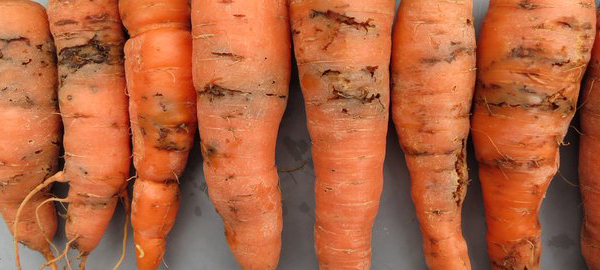FlyIPM

- Acronym: FlyIPM
- Countries involved: United Kingdom, France, Denmark, Germany, Switzerland, Ireland, Norway, and Slovenia
- Budget: total budget of €1,702,654 and has been granted €1,104,778 through the C-IPM second call.
Getting to the root of root flies
Scientists from eight European countries are collaborating on improving the management of root flies in outdoor vegetables.
They poke holes in seeds, dig tunnels in roots and sap the life out of tender seedlings. They reduce crop yields and make vegetables unappetizing and inedible. Root flies are the bane of outdoor vegetables such as cabbages, carrots, turnips and onions. What to do?
There is plenty of knowledge about the various species of root flies but much remains to be discovered and coordinated if control strategies are to be implemented successfully. A new research project that involves scientists from nine different research institutions in the United Kingdom, France, Denmark, Germany, Switzerland, Ireland, Norway, and Slovenia aims to address the situation.
The three-year research project, coordinated by Dr. Rosemary Collier from the University of Warwick in the United Kingdom, aims to improve the management of root-feeding fly larvae infesting outdoor vegetable crops using an integrated pest management (IPM) approach.
The project, entitled FlyIPM, has a total budget of €1,702,654 and has been granted €1,104,778 through the C-IPM second call.
Flies need better control
The key pest insects are cabbage root fly, turnip root fly, onion fly, bean seed fly and carrot fly. They all reduce crop yield and quality considerably if not managed effectively. Control of them in Europe still relies mainly on the use of insecticides. There is a good understanding of the insects’ basic biology and ecology and several IPM strategies have been investigated but more needs to be done.
- There is scope for refining and combining some of the approaches and for evaluating them collaboratively in different locations and cropping systems, says Dr. Rosemary Collier.
Some of the approaches that have been investigated previously are host plant resistance, sterile insect release, companion planting and biological control. Monitoring systems have been developed for all the key root fly pests. The same goes for forecasting and dissemination systems for some of the root flies in some of the partner countries.
- The need now is to develop monitoring and decision support systems for the root flies that are reliable, cost-effective and simple. It is also necessary to develop alternative control strategies with fewer side effects on beneficial organisms and alternative ways of applying treatments. It is also timely to consider the impact of climate change on pest life cycles in the future, says Dr. Collier.
All round approach will be taken
The project partners will take a holistic approach to improving root fly control with the following actions:
- Create, gather, and coordinate knowledge about the pests’ life cycles and about monitoring and forecasting models
- Develop methods to reduce the likelihood of adult insects finding and infesting susceptible crops
- Develop and refine biological control methods using fungi and nematodes
- Integrate existing and newly developed control methods into IPM strategies
- Disseminate the information they develop and acquire to farmers, advisors and other stakeholders.
The results of their efforts will be the development of new tools for the IPM toolbox. This will benefit the environment and human health and improve farm income. Upgraded root fly control can increase crop harvest and quality and reduce waste pre- and post-farm gate.
For more information, please contact
Dr. Rosemary Collier
University of Warwick, United Kingdom
Email: rosemary.collier@warwick.ac.uk.